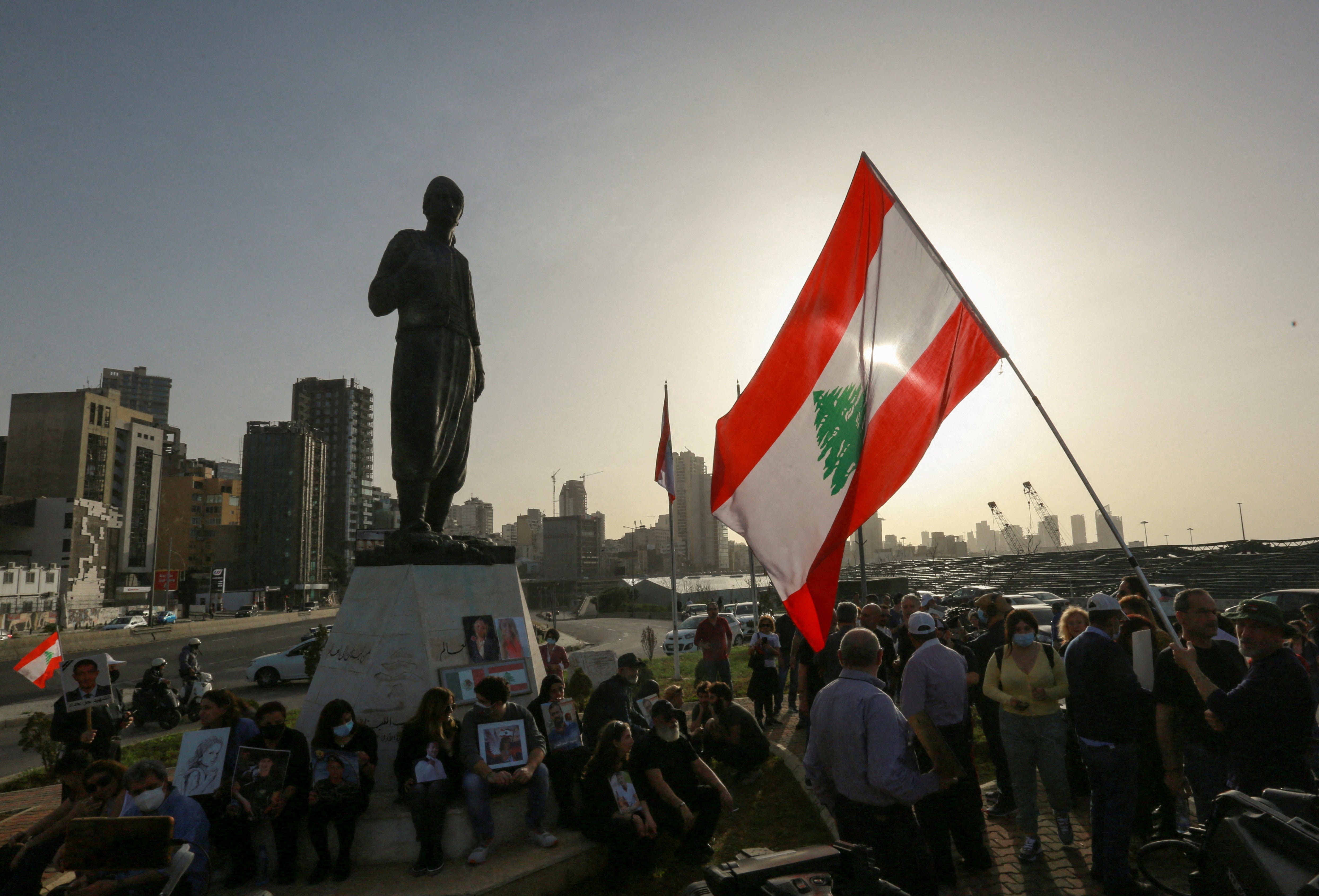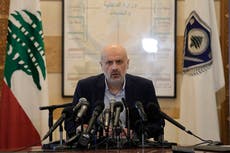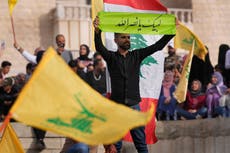Hope or stalemate? Lebanon waits to see if election can deliver change
Despite some successes for independent candidates, crisis-ridden Lebanon’s future is no clearer after last weekend’s election

The chief task of the new parliament elected during last weekend’s vote in Lebanon is a critical one: it will be to ensure the very survival of the embattled, near-bankrupt country.
Time is running out. The Mediterranean nation of some 6 million people is, according to the World Bank, in the grip of one of the worst economic collapses in modern history, and is still reeling from the enormous explosion that took place in Beirut in 2020.
The local currency lost over 90 per cent of its value in just a year, while food and medicine prices increased fivefold and sixfold respectively over the same period. Most of the country only gets a few hours of state power a day, while food, water, fuel and medicines are in short supply.
The World Bank blamed the crisis on a “deliberate depression” caused by the ruling elite. Due to a complex sectarian power-sharing system, a handful of parties claiming to represent the country’s patchwork of religious sects have dominated politics since the 1975-1990 civil war.
After an anti-government uprising in 2019, many saw this year’s elections as the last chance to break that chokehold and bring about change, perhaps even accountability.
There were hopes that the vote would see the arrival of fresh faces, and the election of those willing to push through painful and much-needed reforms. But as the results came in, while there were some surprises, that breakthrough did not completely transpire.
The immediate aftershock of the election, before the political jostling of alliances is finished, has already been felt. In the days since the polling stations closed, the exchange rate of the Lebanese lira to the US dollar has sunk once again to past 30,000 – from a pre-crisis value of 1,500. This has sent prices soaring.
Nearly all the usual political parties, meanwhile, maintain a somewhat diminished, but still strong, grip on the country’s parliament.
At the heart of the new body, two key and fundamentally opposed blocs have emerged: on one side is the Shia militant and political group Hezbollah. On the other is the anti-Hezbollah Christian party, the Lebanese Forces, now the largest Christian bloc after its candidates made sizeable gains.
Neither embodies the revolutionary vision of the 2019 uprising.
“These two blocs, that are vehemently opposed to each other, are going to control the political tempo of the country. They do not see eye to eye, and both are products of the political establishment,” says Randa Slim, a senior fellow and director of conflict resolution at the Middle East Institute.

“The legislative process is not going to be as cut and dried as it used to be. Between these two opposing ideas we could have a protracted political stalemate.”
The murkiness is partly due to no one faction winning an outright majority. One of the key changes from the 2018 vote is that Hezbollah, and its chief ally Amal, have lost their 71-seat parliamentary majority, which over the years allowed them to control key decision-making moments.
It’s not that Hezbollah and Amal did not keep their 62 seats, but that some of their oldest allies, including Sunni, Druze and Christian politicians, lost theirs.
“This means the challenge is that you have a very fragmented parliament that is much more fragmented than before,” says Maha Yahya, director of the Malcolm H Kerr Carnegie Middle East Centre.
She warns that this could see a deadlock on key decisions, such as the appointment of a speaker for parliament, or reforms tied to the much-needed International Monetary Fund (IMF) loan.
But there were some positive signs of change.
One of the surprise wins of the election was the breakthrough of independent opposition politicians who emerged from the October 2019 protests. In total, 13 of these candidates have now won seats in parliament.
One of the most significant gains was in the Hezbollah-held south of the country, where an electoral list backed by Hezbollah and Amal were beaten by “Together for Change”.
Among the victorious revolutionary candidates are Firas Hamdan – a Druze lawyer who was injured in the 2019 protests – and Elias Jradeh, a Christian Orthodox eye surgeon who has vowed to seek to reform the country’s failing healthcare system, electricity woes and schools.
Jradeh himself unseated one of Lebanon’s longest-sitting MPs: 70-year-old Assaad Hardan, who had been in parliament for three decades.
In fact, reform-minded candidates, who ran despite not having the financial resources or staff of established factions, won more than 200,000 votes in total – second only to the number of votes cast for Hezbollah.
But the problem remains that there is no unified opposition, says Ms Yahya. “The independent and opposition candidates that have secured seats don’t necessarily share the same point of view on a lot of key issues, whether they be political or socio-economic.
“It will dissipate their impact. There is no point having 13 opposition candidates doing 13 different things,” she adds.
The next fraught step will be appointing a speaker for parliament, then a prime minister, before the presidential elections in November.
Reforms that are needed for key rescue plans, such as an IMF loan, cannot be pushed through until those decisions are made. There is not much time.

The Lebanese Central Bank, for example, has propped up the currency by injecting dollars into the market, at a rate estimated by Crisis Group to be as high as $500m (£400m) per month, which is obviously unsustainable.
Experts warn that it is only a matter of time before hyperinflation is triggered again. That has already started to happen, with the exchange rate creeping up and prices soaring.
“I’m not giving up on hope, but I am not betting on major changes,” says Ms Slim, warning that political deadlocks can have major security and economic implications in a country with a long history of civil war. “It is going to be very hard for a divided parliament and a fragmented opposition to pass the type of structural reforms needed by the IMF.”
But Ms Yayha says that at the very least there have been some small changes. “The elections gave a lot of hope. It reflects what we have all been feeling: that people are really fed up. Hopefully the momentum for change has begun.”



Join our commenting forum
Join thought-provoking conversations, follow other Independent readers and see their replies
Comments